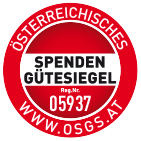16.06.2015
2015 - Volunteer Report David

Julie and I had a couple of key objectives for our relatively brief mission in Uganda: (a) make a lasting difference to the fates of at least 100 very needy people (b) have some peaceful time for ourselves, as a couple, after almost 30 years of raising our own children and (c) see Africa and learn about its culture and perspectives. Now, at the end of our 4 months stay at Nateete school, I am very positive and feel we have fulfilled these aims.
Nateete school is located in the remote village (“trading centre”) of Kifufu which is 40 minutes motorcycle drive away from the central Ugandan town of Mubende. The overwhelming majority of the population consists of very poor subsistence farmers. Almost every family lives in a small shack and farms maize and beans using their own manual labour, working a small plot, to harvest enough food to feed their 7 or 8 children ranging in age from 1 to 16 and sell a bit of the crop to the mill to get some cash to buy necessities which they can’t grow themselves. The organisation’s primary school fees are set very low to enable most of these farmer families to send every child through primary school and it demands no fees of the most needy (extreme poor, orphans of HIV victims). Our mission coincided with the start of operations of the Nateete secondary school – new buildings, new teachers, new and older students, twice as many boarders … new challenges! Our prime role, as the first volunteers from Europe in Nateete, was to “smooth” and “accelerate” the initial ramp-up of the new secondary school.
Did we make a lasting difference and how? Julie and I were extra team members for the school staff without a pre-defined role or daily agenda. As such, we were used to fill the most urgent gaps on a daily basis – installing solar panels and electrics in new dorms and new classrooms to give light in evenings, giving first aid to 5-6 children per day for infected cuts and for initial symptoms of malaria. However, we felt our major impact was to get teachers and students to challenge and discuss some of their mindsets and approaches to handling situations (without imposing western values). We had intense conversations with groups of teachers in their mid-20’s and pupils in the late teens to make them aware of different opinions, lifestyles and methods and their pro’s and con’s. We helped them experiment with different techniques and forms of teaching, debating, farming, keeping discipline, requesting tasks to be done, treating the sick, etc. – and hope that some will persist with staff and students after we leave.
Did we have some peaceful time for ourselves? Yes, we enjoyed the simplicity of our busy life in the school community, our daily errands in the small trading centre and the morning and evening hours in our “volunteer house” retreat and the peaceful sounds and views of the surrounding hills, trees and farmland. We avoided and minimised the visits to more urban life in the closest town Mubende or to the organisation’s headquarters in Zigoti or to Kampala. We loved sharing the whole experience of volunteering in a rural, African boarding school with our few European visitors – various family members as well as several volunteers from the other schools. We have also definitely learned new culture and perspectives and have a greater respect for them. On the one hand, we understand now that all of us (Westerners) would think and act very differently (i.e. more African) if we were also merely “surviving” from our daily farm or other simple vocational labour and that our modern, western mindsets have taken many decades to evolve and become established. We hope they will take fewer decades than this to evolve and become established in Uganda.











